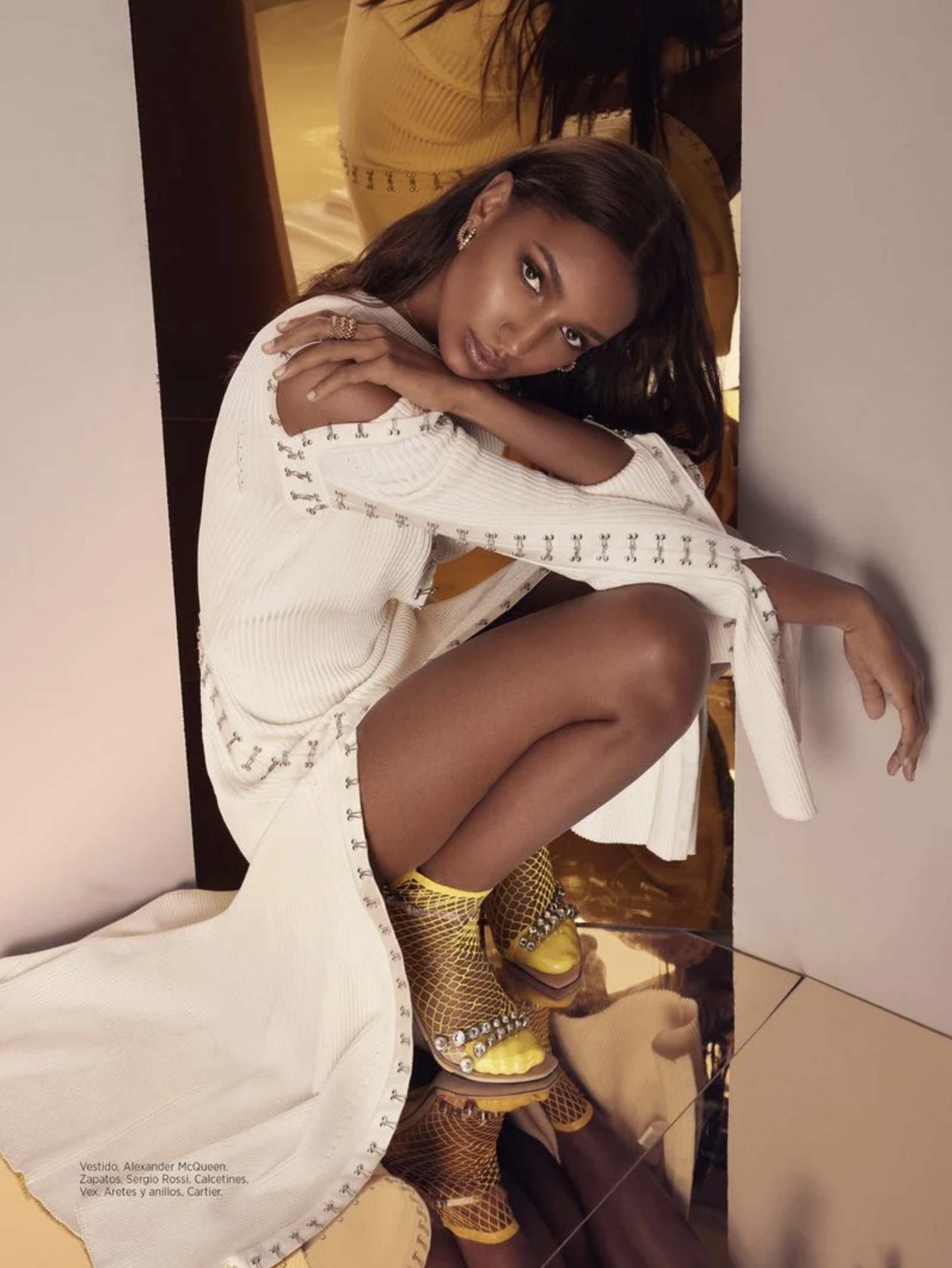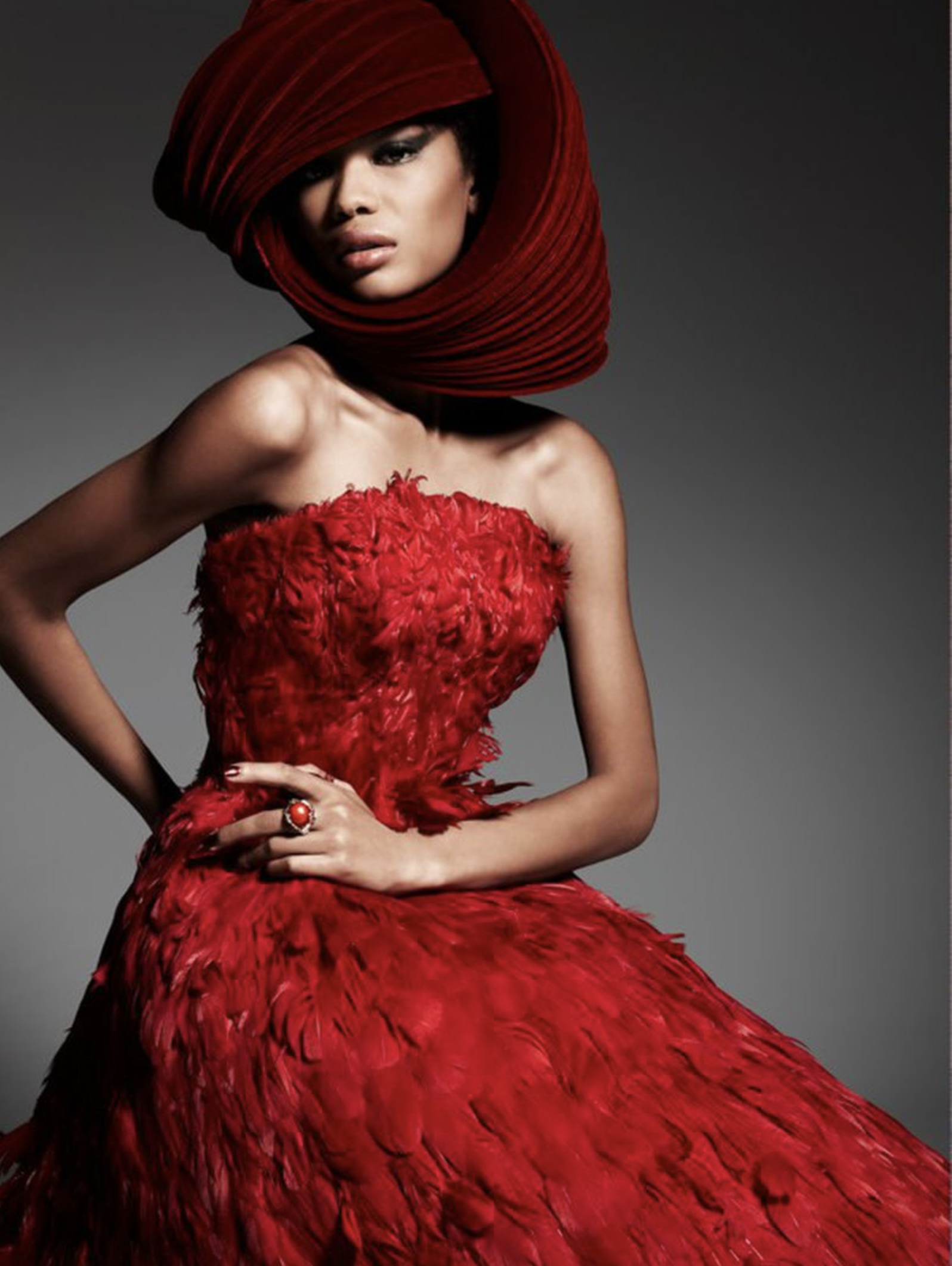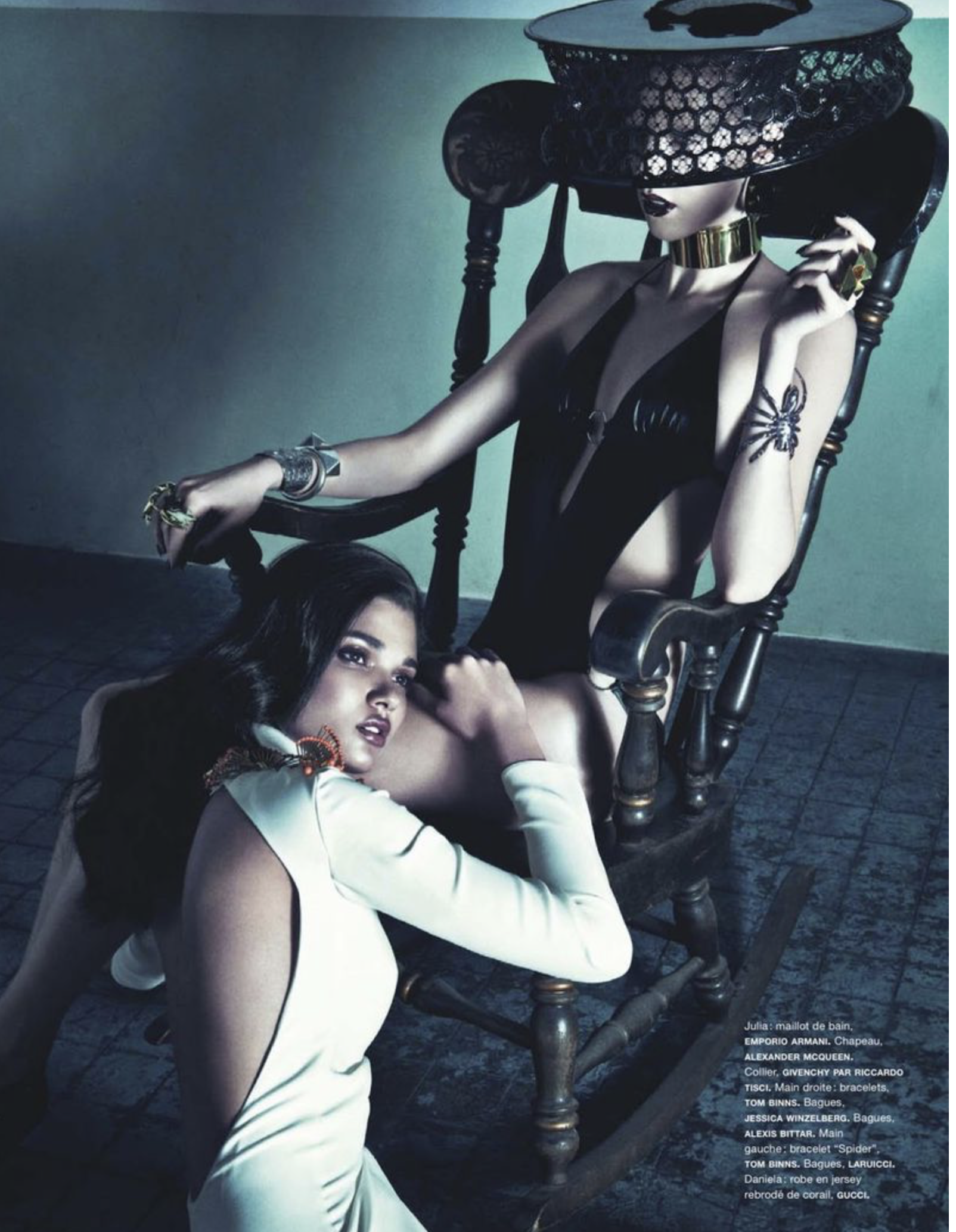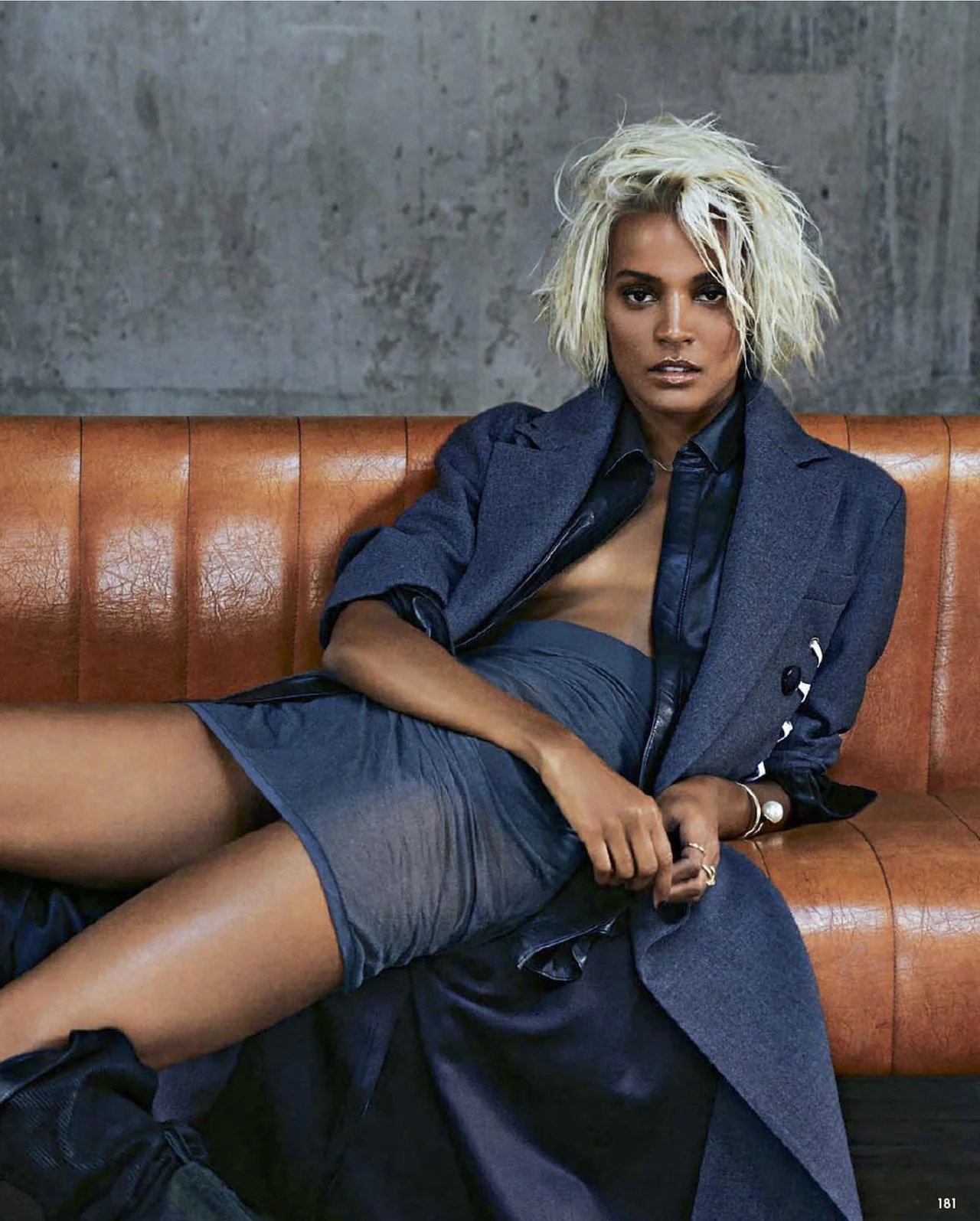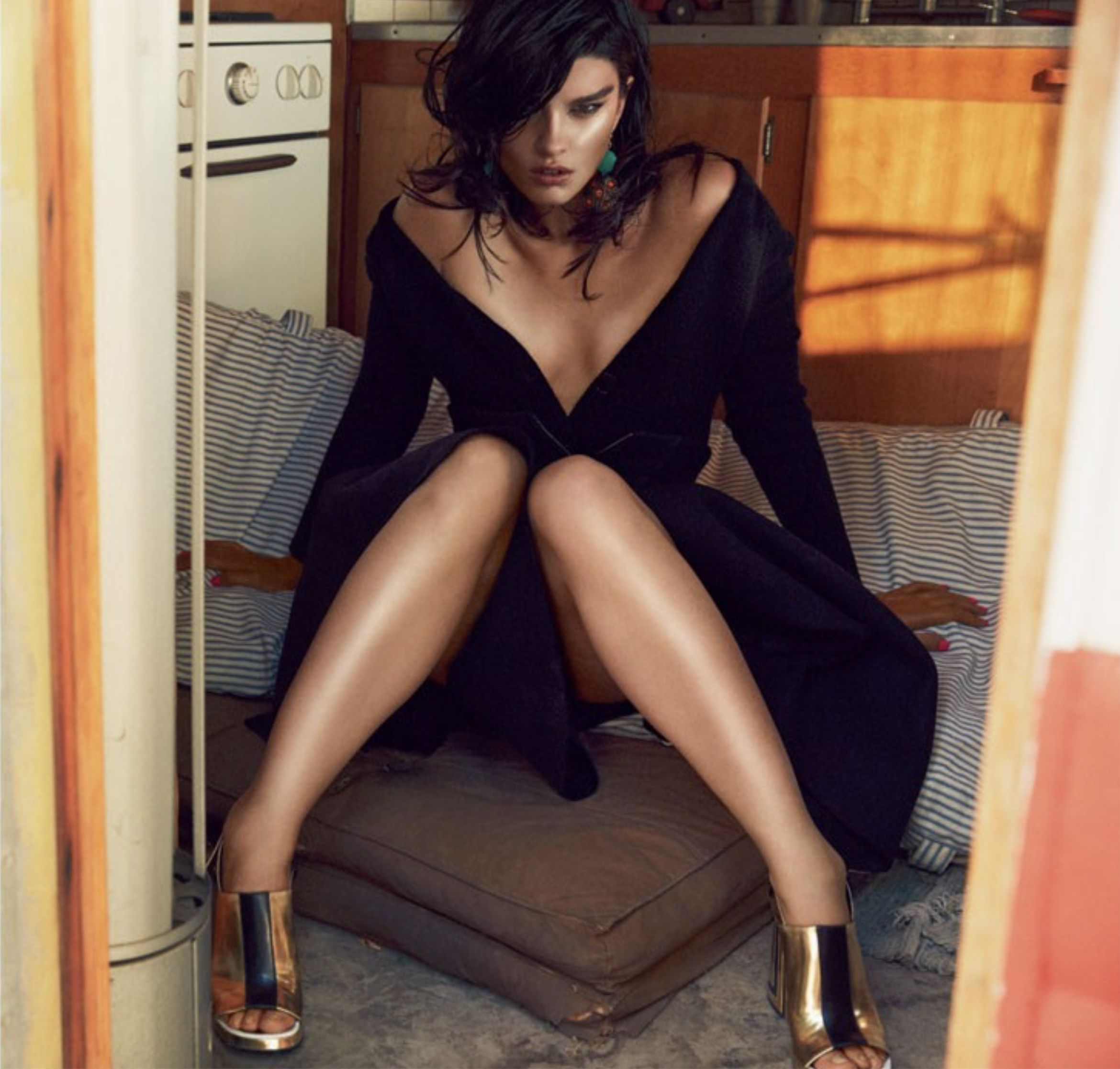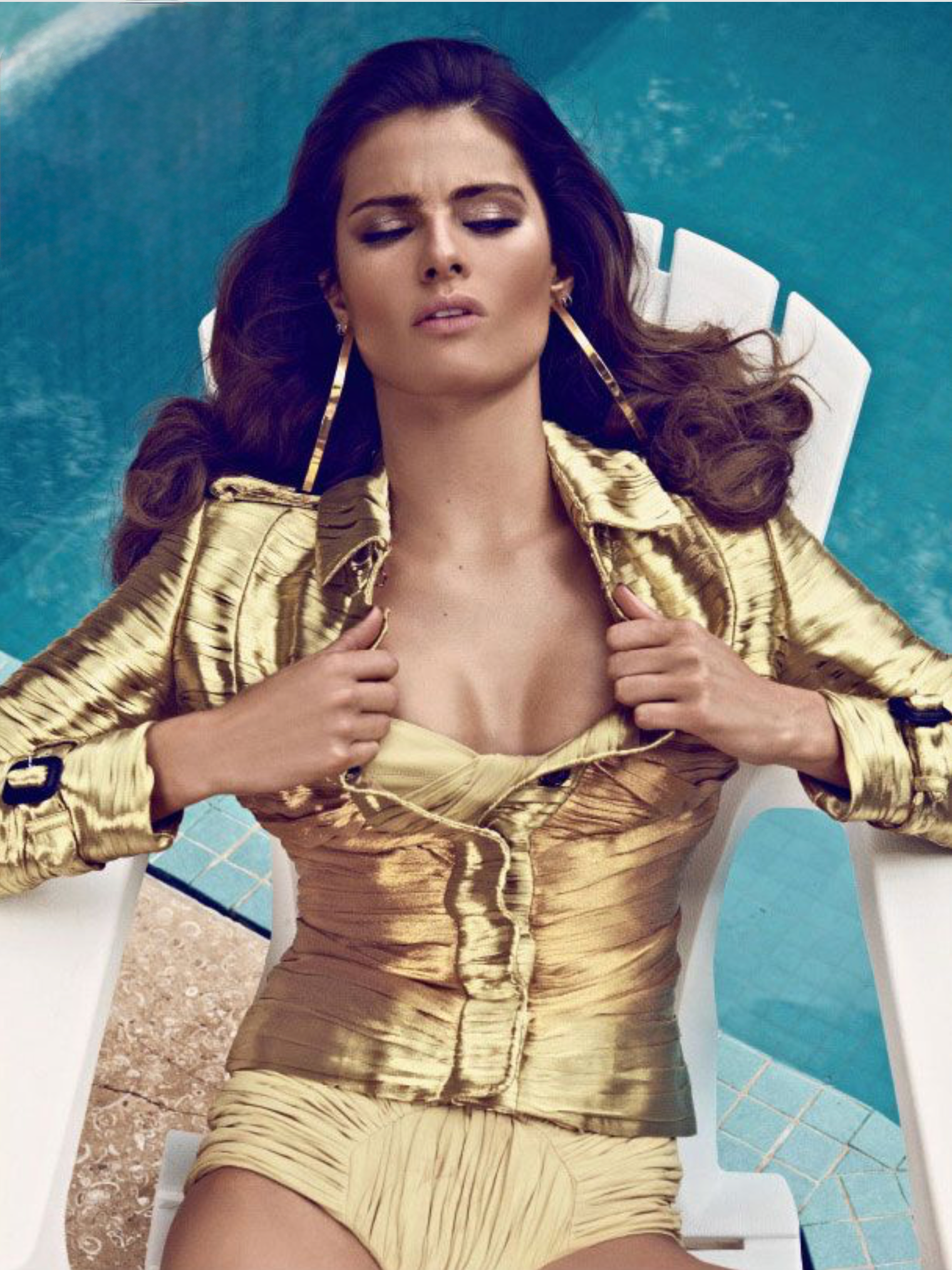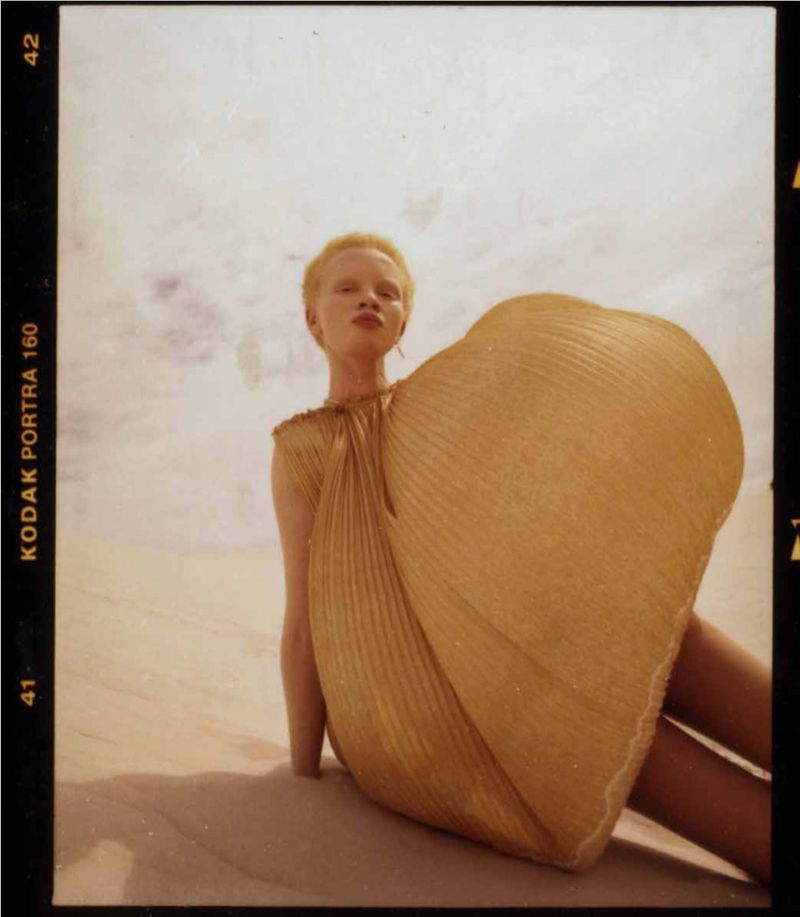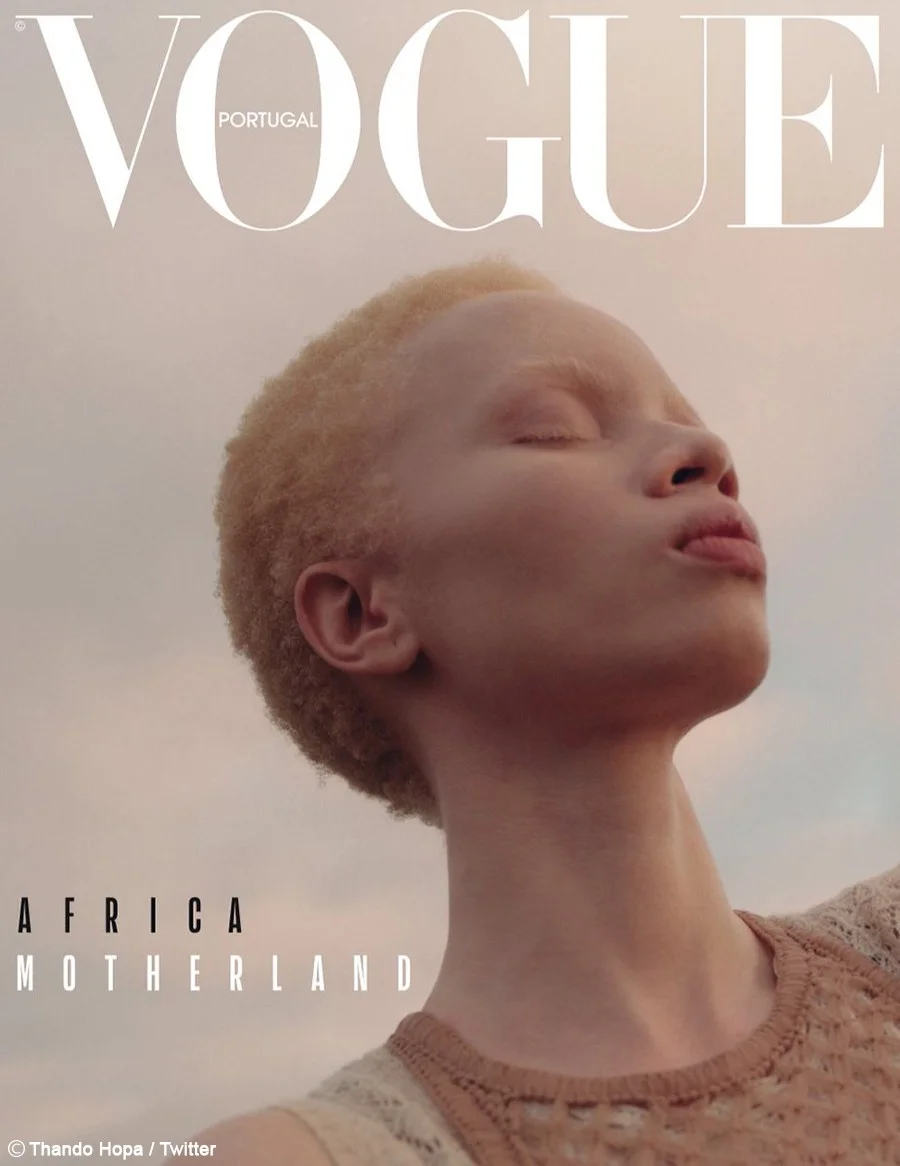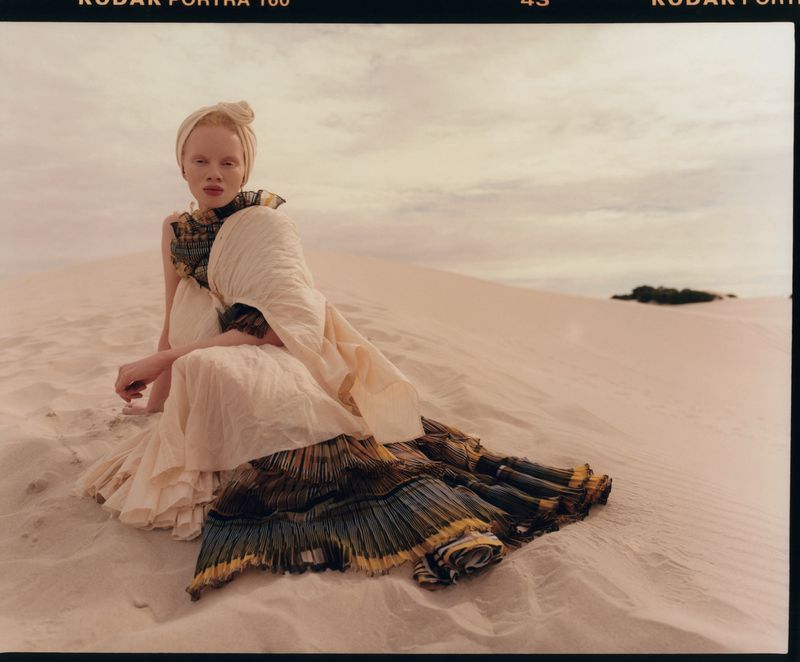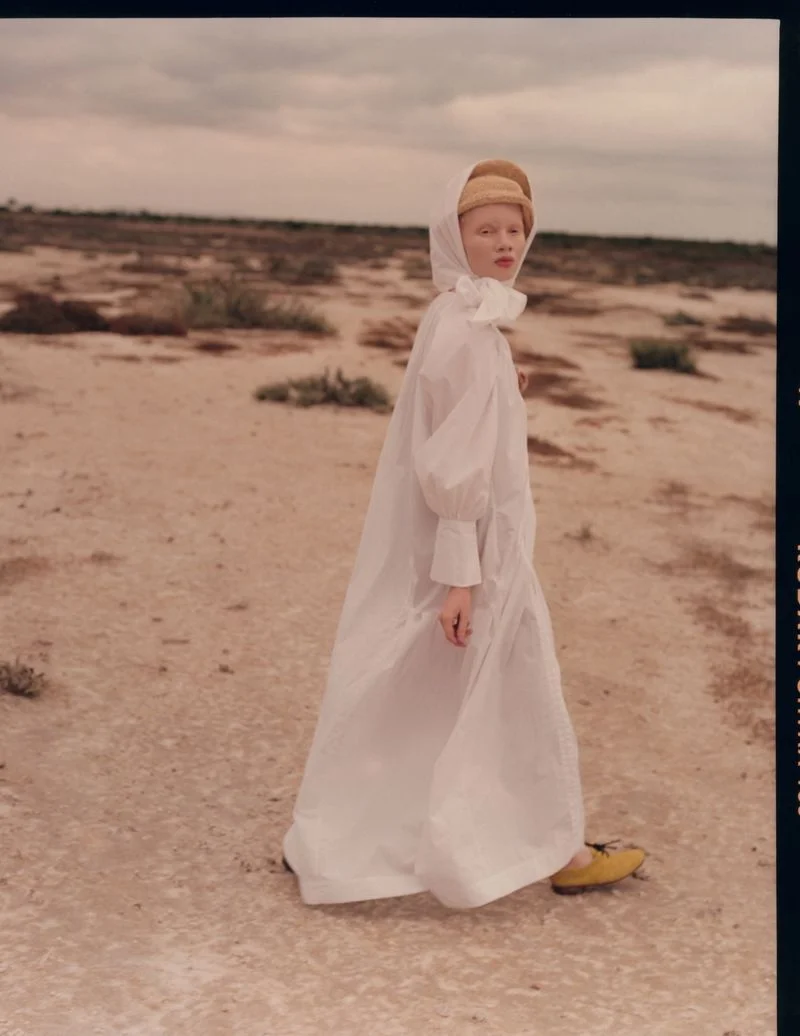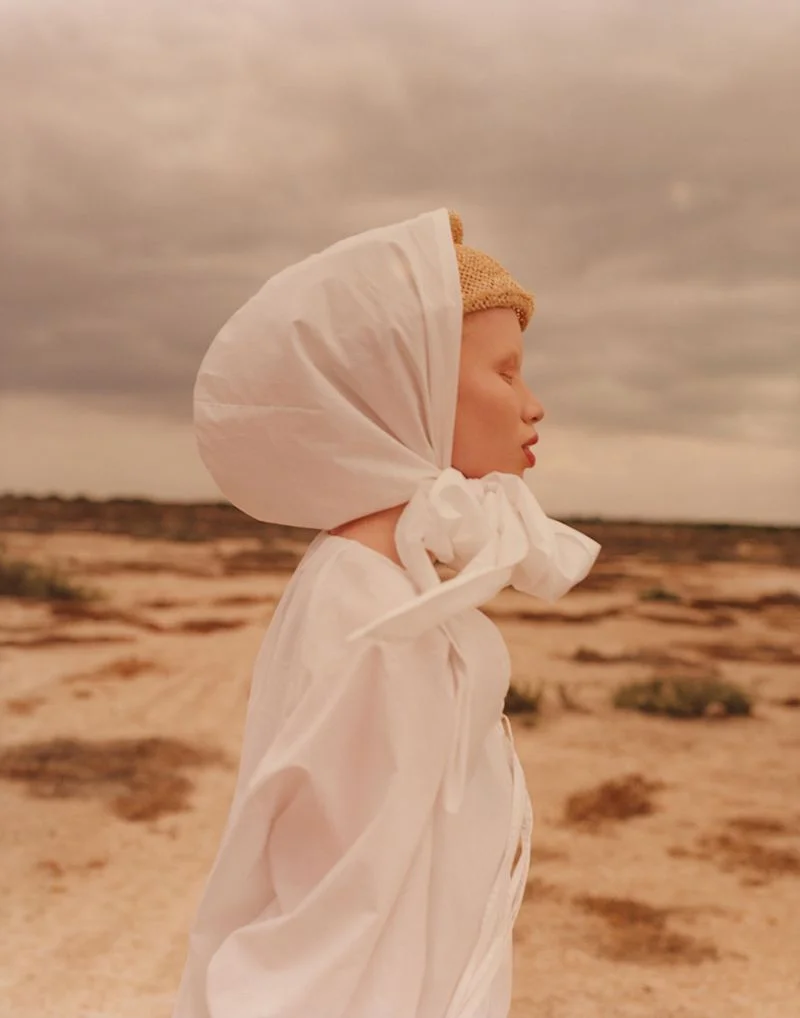Thando Hopa's Vogue Portugal April 2019 Rhys Frampton Images + Joana Moreira Interview
/Thando Hopa's Vogue Portugal April 2019 Rhys Frampton Images
South African model, activist lawyer, writer and all-around mega talent, Thando Hopa’s editorial is now published online. Hopa is the first albino woman ever to grace an issue of Vogue. Sally Anne Bolton styled Thando in neutral beauty lensed by Rhys Frampton.
We share first AOC’s recent introduction to Thando Hopa with references and links to her appearance in the 2018 Pirelli Calendar. Next up are highlights from the Vogue Portugal interview. I must say that the level of high intelligence from both Joana Moreira and Thando Hopa in their dialogue is so inspiring.
Thando Hopa Covers Vogue Portugal April Issue 'Africa Motherland' Dedicated To Humanity's Home AOC EYE
Thando took to her Instagram page to celebrate the big news on Tuesday, 2 April 2019, with a lengthy post, stating:
“I once said to a close friend that it would really be lovely to see a woman with albinism on a Vogue Cover, I would not have imagined that that woman would be me. We are the ones we have been waiting for. I’m emotional, because I see progress and get to form part of a progressive story and narrative. I got to a place in my career where I appreciate every specimen of my body and knowing that wherever I go, my existence, the way it is, has always and will always be enough.”
Thando Hopa: "As a black, african, and albino woman, I have fought for empowerment my whole life" by Joana Moreira for Vogue Portugal April 2019
On the gradual process of understanding that she was an albino
It was all very gradual. When I went to school, my mother never told me, “Listen, you are different from other children.” Because I grew up in a pigmented society. I grew up surrounded by people with Indian origins and Black people. I was the only one with white skin. But my parents never had that official conversation with me. What my mother always did, and I think it was a way of teaching me about albinism without needing to talk about it specifically, was teaching me practical things, such as things related to my sight. My father would play ball with me to help me deal with my field depth, my mother would teach me about skin care and made sure I always wore sunscreen. So, I understood the practical implications of my skin, but not its social and cultural implications. (...) When you are a child, you are not different, you are just a child. At most, you can be a girl, but even the gender issue is not very important when you are four or five years old. The same happened with albinism. I was not an albino. I was not even black. I did not understand the concept of race as a child. Your mind only starts to understand it as you grow up, and society begins to teach you that you are different. I think I only realized what being an albino meant when I was in high school.
"I WAS NOT AN ALBINO. I WAS NOT EVEN BLACK. I DID NOT UNDERSTAND THE CONCEPT OF RACE AS A CHILD. YOUR MIND ONLY STARTS TO UNDERSTAND IT AS YOU GROW UP, AND SOCIETY BEGINS TO TEACH YOU THAT YOU ARE DIFFERENT"
Thando Hopa talks about the first time she felt beautiful, with an answer that reinforces one of her main beliefs about beauty, the process of knowing that she is “enough as a woman”.
I remember coming home from school one day, and telling my father, crying, I did not want to be like this anymore. Because when you are a teenager, and your femininity starts to appear, your ideas of attraction and beauty also come along. You begin to internalize the images you see in the media, your culture, who is considered beautiful and, if that is not you… Well, I went to my father in tears when I was around 12 years old and he, who sincerely raised me in the best way a man could, told me I was the most beautiful girl he had ever seen. And I continued to cry. Today, I know that moment was decisive to my process of knowing that I am enough as a woman. And then, time went by, I started coloring my eyebrows, my eyelashes… [laughter]
Thando on why the topic of sex crimes is so important to her as an attorney, an activist and as a model.
For me, as a person, as well as a woman, the question of having power over someone else’s body is very important. It is a fundamental right and it is important that people know that. So, I cannot stand transgressions, whether it is sexual harassment, rape, sexual exploitation, things to which models are more vulnerable to… I think that, as a Black, African, and albino woman, I have fought for empowerment my whole life. Everything that goes against this is the origin of my activism; it is the reason why I am an activist. People think that being an activist is a profession, but it is not. It is part of your personality, and it will follow you wherever you go. You can be a model, a builder, an attorney, a big CEO. Activism is a characteristic and it manifests itself in every profession.
Hopa’s very interesting response on a person being ‘special’.
I do not like it. Because I do not think it is positive. To be separated from your humanity is a problem, whether people call you an animal or a sort of angel, whatever, anything that takes your humanity away.
"I DO NOT LIKE IT (THE CONCEPT OF BEING SPECIAL). BECAUSE I DO NOT THINK IT IS POSITIVE. TO BE SEPARATED FROM YOUR HUMANITY IS A PROBLEM, WHETHER PEOPLE CALL YOU AN ANIMAL OR A SORT OF ANGEL, WHATEVER, ANTHING THAT TAKES YOUR HUMANITY AWAY.”
Hopa responds to Moreira about whether the idea of inclusion is a trend.
I wrote about that sometime ago. I do not think that human bodies should ever be called “trends.” I have a serious problem with people who say albinism is a trend, or vitiligo is a trend. Or people who say “It is so cool to be black right now” [laughter]. I cannot deal with what I hear. Human bodies are not disposable. That has been one of my problems in the way look to certain bodies in Fashion. Regarding inclusion, I do not think it is a trend. But dialogue, yes, that can be a trend.
Thando Hopa on how we, as a world, can do better.
With consultancy. Prioritizing consultancy if you want to do deal with something you have no experience in. I need to consult people if I am going to Portugal and do something about Portugal, right? I cannot come here, with my perception on what Portugal is, how Portuguese people speak, and how the culture is, just because I read about it somewhere. I need consultancy. It is essential to truly evolve regarding inclusive diversity. You need to be receptive and ask for help.
Thando Hopa on how Adwoa Aboah got her into the Pirelli calendar, unknown to her and asking nothing in return . . . and how Hopa actually turned down a Vogue editorial shoot because she had more important work to do.
I had no idea that she was the one who sent my picture! I met her very casually, we were just introduced. And I never understood how I got into the Pirelli. You must realize this was unimaginable, in the broader sense of the word. I am a South African woman, so it does not make sense geographically, to begin with. And even though we have made progresses in pop culture regarding representation, a thing this big… But well, I found out that four years earlier, Aboah had shown my picture to Tim Walker [the Pirelli Calendar photographer in 2018]. And they told me: “We are shooting for Vogue.” But I was a district attorney at the time, working on sexual crimes, and I am going to be very honest with you, I was not going to abandon my job to do a three-day Vogue Fashion editorial, and leave a rape victim without an attorney. This was not even an option for me, in terms of priorities. When the calendar was launched, I talked to Tim [Walker], who by the way is one of the most fascinating people I have ever met, and I asked him: “Tim, how did you find me?” And then he told me that Adwoa had sent him my picture. People often seek recognition, and she never did, and that was very surprising. She did something for me without waiting for anything in return. I hope to be that type of person. I believe it was a proof of character.
"PEOPLE OFTEN SEEK RECOGNITION, AND SHE (ADWOA ABOAH) NEVER DID, AND THAT WAS VERY SURPRISING. SHE DID SOMETHING FOR ME WITHOUT WAITING FOR ANYTHING IN RETURN. I HOPE TO BE THAT TYPE OF PERSON. I BELIEVE IT WAS A PROOF OF CHARACTER.”
Thando on being a “role model”, does she have any responsibility?
There is a Native American proverb I read that says something like this: “We do not inherit the earth from our parents. We borrow it from our children.” And I thought that was very interesting because when you inherit something, we assume it is yours and you want to do what you want with it, but if it is borrowed, that means it is not yours, and it needs to be shared. That is how I feel in any platform – that I carry many people with me. I definitely feel the weight and the responsibility, otherwise I would not care, I would choose any job that gave me money and would not care about a legacy that goes far beyond me.
Read the entire Joana Moreira interview in English or Portuguese at Vogue. Portugal.
